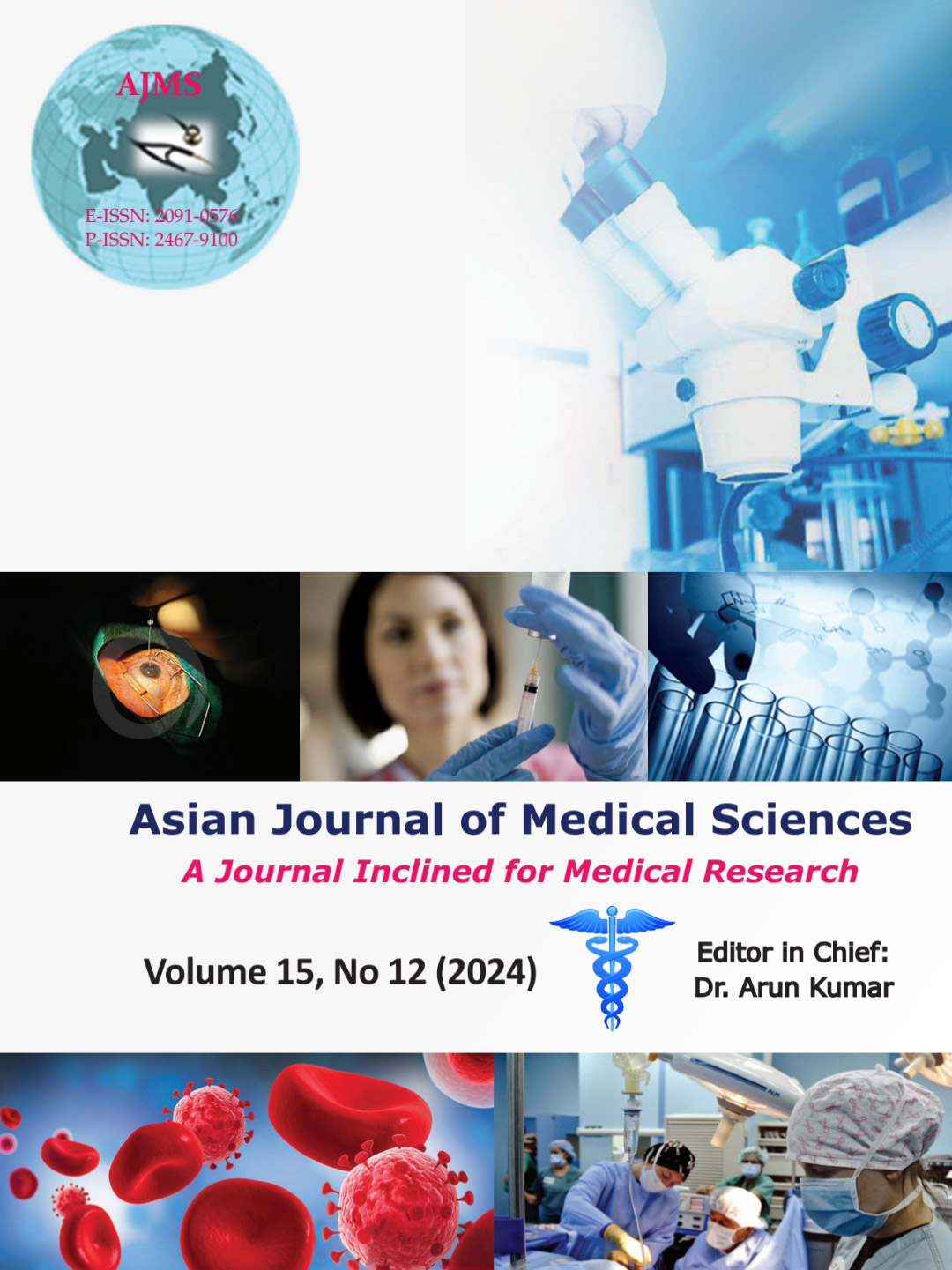Awareness, perception and behavioral determinants associated with cancer prevention among adults: Results from a cross-sectional study in urban field practice area of a tertiary care hospital, Kolkata
Keywords:
Awareness; Perception; Cancer; Urban populationAbstract
Background: Cancer is emerging as a major public health problem. Two-thirds of cancer patients are in the advanced stage at the time of diagnosis. Public awareness plays a big role in cancer prevention.
Aims and Objectives: To assess awareness, perception, and behavioral determinants of cancer prevention of urban adults.
Materials and Methods: An observational, cross-sectional study was conducted in the urban slum of Kolkata. Four hundred fifteen respondents were interviewed using a pre-tested questionnaire after having consent.
Results: Though majority (72.3%) of respondents had satisfactory awareness but had limited awareness on screening tests (58.6%) and vaccination (1.6%). Half of them had a favorable perception on cancer prevention but the perceived barrier was more. The behavior score was poor among the majority of participants. The main source of information was T.V. (88.2%) and friends and relatives (80.2%). Only one-fourth of participants mentioned of health workers and health camps as sources of information indicating inadequate activities on cancer awareness programs. Age (OR 7.08, 95% CI=1.07–46.74), sex (OR 0.38, 95% CI=0.19–0.76) education (OR 4.81, 95% CI=2.50–9.27) were significant predictors of satisfactory awareness. Higher levels of education, younger age, and female gender were factors that shaped perception. Only education level (OR 0.29, 95% CI=0.15–0.59) had a significant association with cancer preventive behavior.
Conclusions: Though awareness on primary preventive measures was satisfactory but behavior was unsatisfactory among study participants. They had more perceived barriers while taking preventive measures. The finding indicates a need to promote health education and motivate people to recognize and modify cancer-related behavioral risk factors.
Downloads
Downloads
Published
How to Cite
Issue
Section
License
Copyright (c) 2024 Asian Journal of Medical Sciences

This work is licensed under a Creative Commons Attribution-NonCommercial 4.0 International License.
Authors who publish with this journal agree to the following terms:
- The journal holds copyright and publishes the work under a Creative Commons CC-BY-NC license that permits use, distribution and reprduction in any medium, provided the original work is properly cited and is not used for commercial purposes. The journal should be recognised as the original publisher of this work.
- Authors are able to enter into separate, additional contractual arrangements for the non-exclusive distribution of the journal's published version of the work (e.g., post it to an institutional repository or publish it in a book), with an acknowledgement of its initial publication in this journal.
- Authors are permitted and encouraged to post their work online (e.g., in institutional repositories or on their website) prior to and during the submission process, as it can lead to productive exchanges, as well as earlier and greater citation of published work (See The Effect of Open Access).




